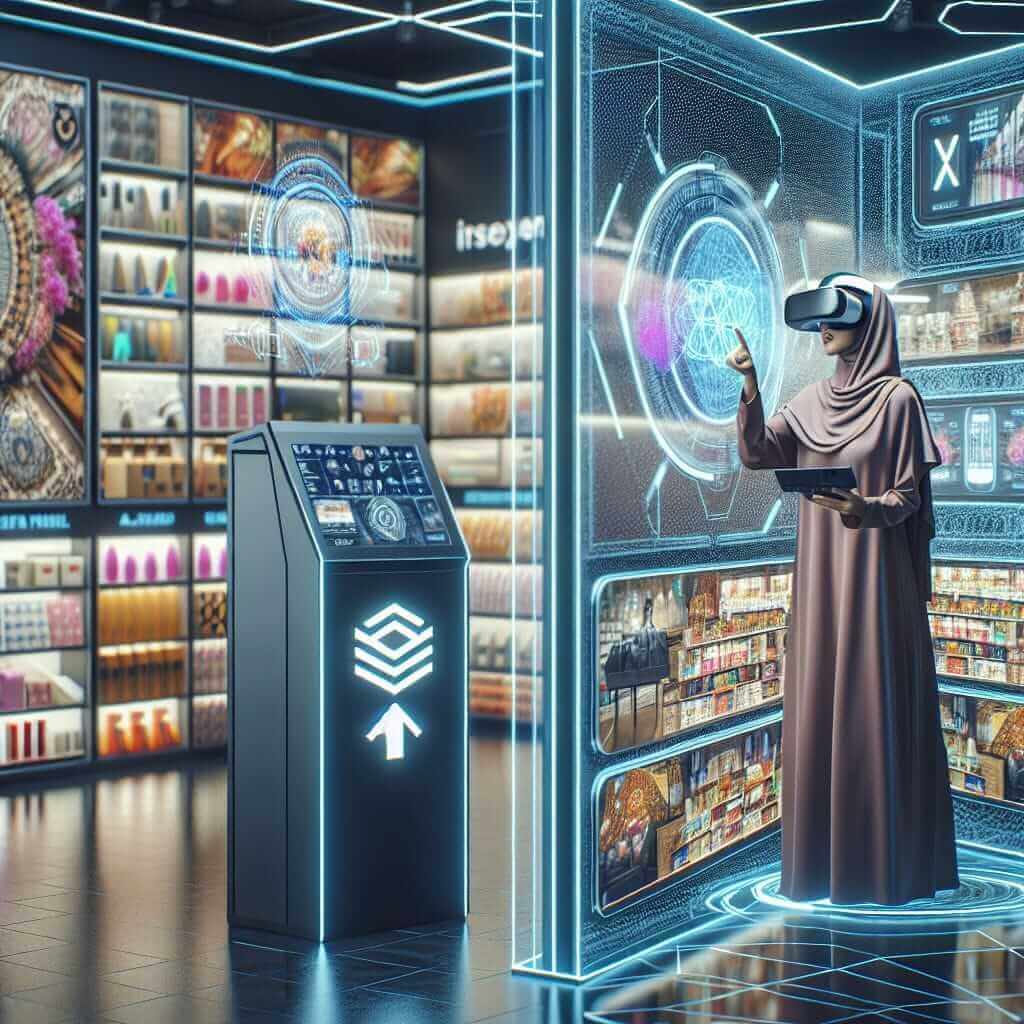The IELTS Reading section is a critical part of the IELTS exam, assessing your ability to comprehend texts of varying complexity. One commonly encountered topic is the impact of digital transformation on various industries. Given the rapid pace of technological advancement, understanding the effects of digital transformation on the retail industry is not only academically relevant but also essential for real-world applications. This topic has appeared in various forms in past IELTS exams and is likely to recur. In this article, you will find an IELTS Reading practice test focused on this very subject, complete with questions and answers to boost your preparation.
Reading Passage: Digital Transformation and the Retail Industry
Digital Transformation in the Retail Industry
The retail industry is undergoing a seismic shift due to digital transformation. Digital transformation refers to the integration of digital technology into all areas of a business, fundamentally changing how businesses operate and deliver value to customers. This transformation impacts multiple aspects of the retail sector, including customer experience, supply chain management, data analytics, and overall business strategies.
Customer Experience
One of the most significant effects of digital transformation on the retail industry is the enhancement of customer experience. Technologies such as artificial intelligence (AI), augmented reality (AR), and virtual reality (VR) have revolutionized the way customers interact with retail brands. AI-powered chatbots provide instant customer support, while AR and VR offer interactive and immersive shopping experiences. These technologies not only improve customer satisfaction but also increase the likelihood of repeat business.
Supply Chain Management
Digital transformation also optimizes supply chain management. Advanced analytics and Internet of Things (IoT) technology allow retailers to monitor inventory levels in real-time, track the movement of goods, and forecast demand more accurately. This results in reduced operational costs and minimized inventory wastage, contributing to more efficient and sustainable business practices.
Data Analytics
Another crucial component of digital transformation is data analytics. Retailers now have access to an unprecedented amount of data, which can be used to analyze customer behaviors, preferences, and trends. By leveraging this data, retailers can make informed decisions about product development, marketing strategies, and customer engagement. Predictive analytics enables retailers to anticipate market trends and customer needs, providing a competitive edge in a saturated market.
Business Strategies
The integration of digital technology into retail business strategies is another pivotal impact of digital transformation. E-commerce platforms, mobile applications, and social media are essential tools for reaching a broader audience and enhancing brand visibility. These platforms enable retailers to offer personalized shopping experiences, tailor marketing campaigns, and engage with customers on a personal level. Additionally, blockchain technology improves transaction security and transparency, fostering trust between retailers and customers.
Practice Questions
Multiple Choice
-
What is the primary focus of digital transformation in the retail industry?
a) Enhancing physical store designs
b) Integrating digital technology into various business aspects
c) Reducing employee numbers
-
How has AI improved customer support in the retail industry?
a) By replacing human staff entirely
b) By providing instant assistance through AI-powered chatbots
c) By developing new product designs
True/False/Not Given
-
Digital transformation has no impact on supply chain management.
a) True
b) False
c) Not Given -
Blockchain technology is used to enhance product packaging in retail.
a) True
b) False
c) Not Given
Matching Information
-
Match each technological advancement with its corresponding impact on the retail industry.
a) AI-Powered Chatbots –
b) IoT Technology –
c) Predictive Analytics –
Sentence Completion
-
Digital transformation allows retailers to ____ the movement of goods in real-time.
-
Retailers use ____ to analyze customer behaviors and trends.
Answer Key
-
b) Integrating digital technology into various business aspects
-
b) By providing instant assistance through AI-powered chatbots
-
b) False
-
b) False
-
a) AI-Powered Chatbots – Provide instant customer support
b) IoT Technology – Monitor inventory levels in real-time
c) Predictive Analytics – Anticipate market trends and customer needs
-
track
-
data analytics
Lessons from Common Mistakes
Common Mistakes in Reading Comprehension
- Misinterpreting the Question: Ensure you understand what the question is asking. Often, students lose marks by overlooking keywords in the questions.
- Overlooking Context: Always read a few sentences before and after the referenced part to capture the context.
- Rushing Through the Passage: Skimming is essential, but do not rush. Understanding the main points is crucial.
Vocabulary
- Seismic (adj) /ˈsaɪzmɪk/: having a very great and usually damaging effect.
- Immersive (adj) /ɪˈmɜːsɪv/: providing, involving, or characterized by deep mental involvement.
- Optimize (v) /ˈɒptɪmaɪz/: make the best or most effective use of (a situation, opportunity, or resource).
- Analytics (n) /ˌænəˈlɪtɪks/: the systematic computational analysis of data or statistics.
- Saturated (adj) /ˈsætʃəˌreɪtɪd/: (of a market) beyond which no further growth can be expected.
Grammar Focus
Relative Clauses:
- Definition: A relative clause is a subordinate clause that modifies a noun.
- Example: Technologies such as AI and AR, which have revolutionized the way customers interact with retail brands, are transforming the industry.
Usage in IELTS:
- Effective use of relative clauses can add complexity and depth to your sentences, which is beneficial for higher band scores.
Recommendations for High IELTS Reading Scores
- Practice Regularly: Regular reading practice across different topics can enhance comprehension skills.
- Develop Skimming and Scanning Techniques: Quickly identify the main ideas and specific information.
- Enhance Vocabulary: A strong vocabulary helps in understanding complex texts.
- Understand the Question Types: Being familiar with various question types helps in answering more accurately.
- Review Mistakes: Analyze your mistakes to avoid repeating them in the future.
Stay persistent in your preparation, and you will see your IELTS Reading score improve.

Understanding the effects of digital transformation on the retail industry is not only a potential IELTS topic but also a relevant real-world issue. Use this guide to improve your reading skills and deepen your understanding of this significant topic. Happy studying!